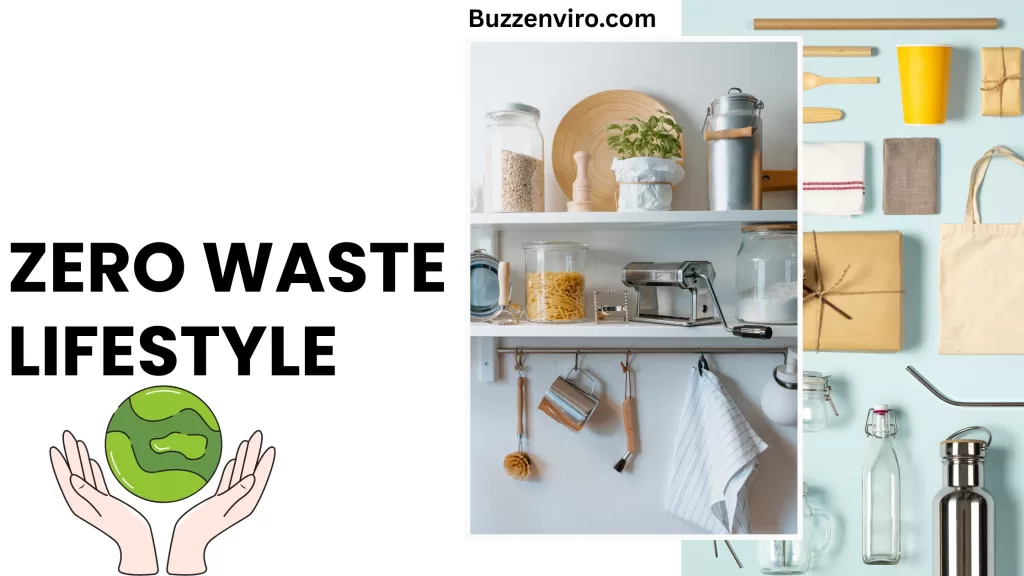In a world overwhelmed by plastic waste and pollution, adopting a zero waste lifestyle offers a powerful way to reduce your environmental footprint. By minimizing waste and making conscious, sustainable choices, you can help create a cleaner, healthier planet for future generations.
But what exactly does a zero-waste lifestyle mean? It’s all about rethinking how we consume resources, reduce unnecessary waste, and keep things in use for as long as possible. It’s not about achieving perfection, but rather about progress, making small changes that collectively add up to a big impact.
If you’re looking to reduce your waste and embrace a more sustainable way of life, here are 10 simple steps to get started with a zero-waste lifestyle.
What is Zero Waste Living?
Zero-waste living is a lifestyle philosophy that focuses on minimizing waste by reducing consumption, reusing items, and recycling responsibly. The goal of zero-waste living is to send nothing to the landfill, incinerators, or the ocean, thus reducing the environmental impact of waste disposal.
At its core, zero-waste living encourages individuals to rethink their approach to everyday products and waste. Instead of mindlessly consuming and discarding, zero-waste living encourages mindfulness and sustainability in everything we do. This philosophy typically involves adhering to the 5 Rs:
Refuse: Avoid unnecessary items, especially single-use plastics like straws, bags, and packaging.
Reduce: Minimize what you buy and consume, opting for quality over quantity.
Reuse: Choose products that can be used again and again, such as reusable bags, bottles, and containers.
Recycle: Properly recycle materials and support systems that can repurpose what’s already been produced.
Rot: Compost organic waste, turning food scraps into nutrient-rich soil for gardening.
1. Understand the Basics of Zero-Waste Living
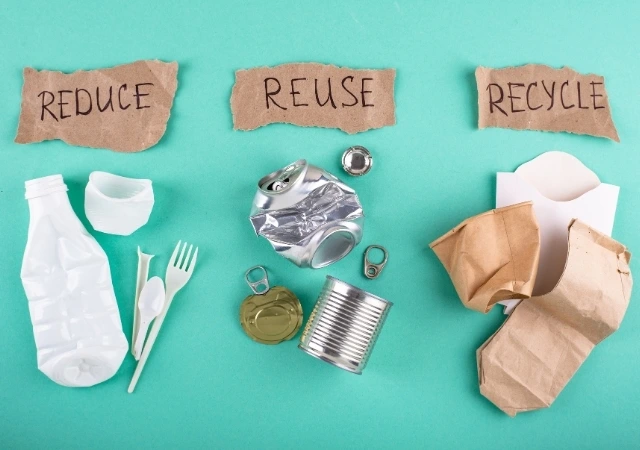
Before diving in, it’s important to grasp the concept of zero waste. The zero-waste philosophy encourages individuals to rethink their consumption habits by following the 5 Rs: Refuse, Reduce, Reuse, Recycle, and Rot. It involves eliminating single-use items, reducing overall consumption, and finding ways to repurpose, recycle, or compost materials instead of sending them to a landfill.
Why it matters:
Our current “throwaway culture” is one of the leading causes of waste and pollution. By moving toward zero waste, we can significantly reduce environmental harm.
2. Start with Refusing Single-Use Items
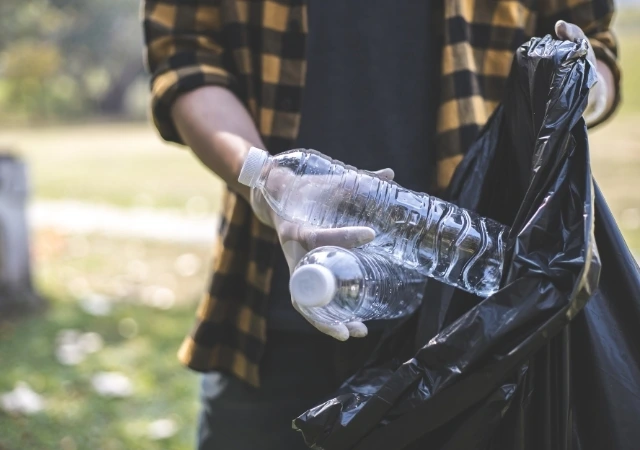
The first step to living a zero-waste life is to refuse anything that’s disposable, especially single-use plastics. Think water bottles, straws, plastic cutlery, and plastic bags. When you refuse these items, you immediately cut down on unnecessary waste.
How to do it:
- Carry a reusable water bottle or coffee cup.
- Say no to plastic straws and utensils—opt for metal or bamboo alternatives.
- Bring your own shopping bags to the store.
Why it matters:
Single-use plastics are among the most common culprits of pollution, often ending up in oceans and landfills. By refusing these items, you reduce the demand for plastic production.
3. Reduce Your Consumption
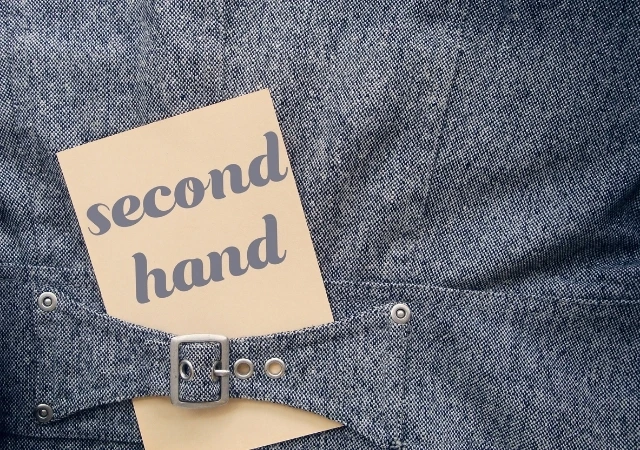
Reducing consumption is one of the most impactful ways to lower waste. Instead of buying new things, ask yourself: Do I really need this? Can I borrow, rent, or buy second hand?
How to do it:
- Shop less frequently and be more intentional with purchases.
- Choose items that are built to last, not cheap, disposable goods.
- Buy secondhand clothing, furniture, and electronics whenever possible.
Why it matters:
The less we consume, the less waste we create. By being mindful of what we buy, we can curb overproduction and reduce the strain on natural resources.
4. Embrace Reusable Products
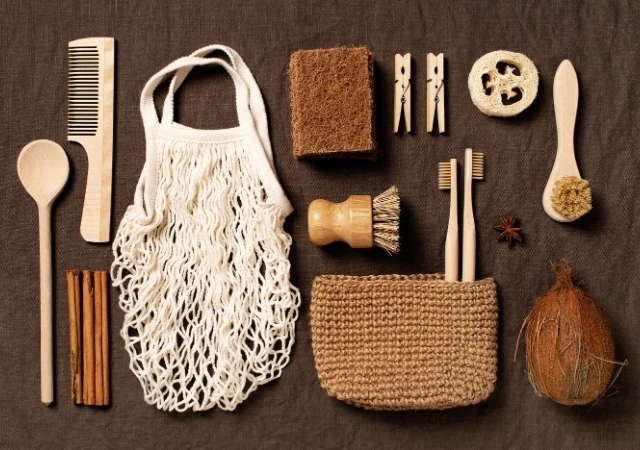
One of the easiest ways to start living zero waste is by replacing disposable products with reusable alternatives. From shopping bags to food containers, making the switch to reusable items reduces waste significantly.
How to do it:
- Invest in a high-quality reusable shopping bag, coffee cup, and water bottle.
- Use beeswax wraps or reusable containers instead of plastic wrap.
- Swap paper towels for washable cloth napkins.
Why it matters:
Reusable items cut down on the need for single-use products, which, in turn, reduces waste and helps you save money over time.
5. Compost Your Organic Waste
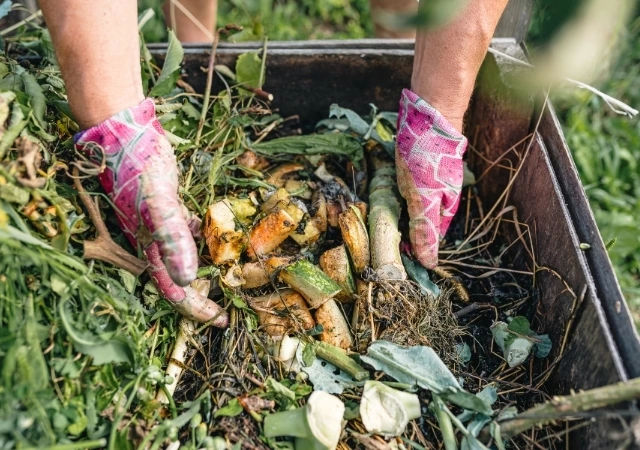
Instead of sending food scraps and yard waste to the landfill, try composting them! Composting not only reduces waste but also creates nutrient-rich soil for your garden.
How to do it:
- Set up a composting bin in your yard or use a composting service if you live in an apartment.
- Avoid composting meat, dairy, or greasy foods, as these can attract pests.
- Use compostable items like coffee grounds, vegetable peels, and eggshells.
Why it matters:
Composting diverts organic waste from landfills, where it would otherwise produce harmful methane gas. Plus, it helps reduce the need for chemical fertilizers in your garden.
6. Buy in Bulk and Reduce Packaging
Buying in bulk is one of the best ways to cut down on packaging waste. Bulk bins at grocery stores allow you to purchase only what you need, which reduces both food waste and the amount of plastic packaging.
How to do it:
- Bring your own reusable containers or cloth bags to the bulk section.
- Buy grains, nuts, spices, and even cleaning products in bulk when possible.
- Choose products with minimal or recyclable packaging.
Why it matters:
By buying in bulk, you reduce the need for individually packaged items, which often come in plastic that ends up in landfills or the ocean.
7. Opt for Eco-Friendly Personal Care Products
Personal care items like shampoo, conditioner, soap, and toothpaste often come in plastic bottles or tubes, contributing to waste. Fortunately, there are plenty of eco-friendly alternatives.
How to do it:
- Switch to bar soap, shampoo bars, and toothpaste tablets.
- Choose refillable deodorants, razors, and other personal care products.
- Buy items with recyclable or biodegradable packaging.
Why it matters:
Personal care products are an everyday part of our lives, but their packaging often ends up in the trash. By opting for sustainable alternatives, you minimize your waste and support eco-friendly brands.
8. Ditch the Paper Towels
Paper towels are a major waste item in most households. Instead of reaching for a new roll every time, consider switching to reusable cloth towels.
How to do it:
- Use cloth napkins for mealtimes.
- Keep a stash of reusable rags for cleaning tasks around the house.
- Switch to microfiber cloths for cleaning windows and surfaces.
Why it matters:
Switching to cloth alternatives reduces the need for disposable paper towels, which are often bleached and non-biodegradable, creating long-lasting waste.
9. Support Sustainable Brands
When you do need to make a purchase, support companies that are committed to sustainability and waste reduction. Many brands are shifting toward eco-friendly products and packaging to minimize their environmental impact.
How to do it:
- Look for certifications like Fair Trade, B Corp, or Certified Organic.
- Choose brands that offer recyclable or compostable packaging.
- Support companies that are transparent about their sustainability efforts.
Why it matters:
By supporting sustainable businesses, you help promote practices that are better for the environment, encouraging others to follow suit.
10. Educate Yourself and Spread the Word
One of the most important things you can do is educate yourself about sustainability and waste reduction, and then share your knowledge with others. The more people who understand the importance of zero waste, the bigger the impact we can make collectively.
How to do it:
- Read books, watch documentaries, and follow eco-friendly influencers to stay informed.
- Share tips with family and friends to inspire them to make small changes.
- Advocate for sustainable policies in your community.
Why it matters:
Raising awareness helps create a ripple effect, inspiring others to take action. The more people who adopt zero-waste practices, the closer we get to a sustainable future.
Take the First Step Toward a Waste-Free World
As you take the first steps toward zero waste living, remember that every small effort makes a big difference. This journey is about progress, not perfection, and every change you make is a step toward a healthier planet. Whether it’s switching to reusable bags, composting your food scraps, or being more mindful of what you buy, your actions contribute to a global movement that’s pushing for a cleaner, more sustainable future. So, why not start today? The planet will thank you for it, and future generations will benefit from the changes we make now. Together, we can turn the tide on waste—one step at a time.
Join us on this journey to a cleaner, greener world. Every action counts, and together, we can create a waste-free future.
Are you ready to take the first step?
Also Read:- Biomedical Waste Management and its importance
